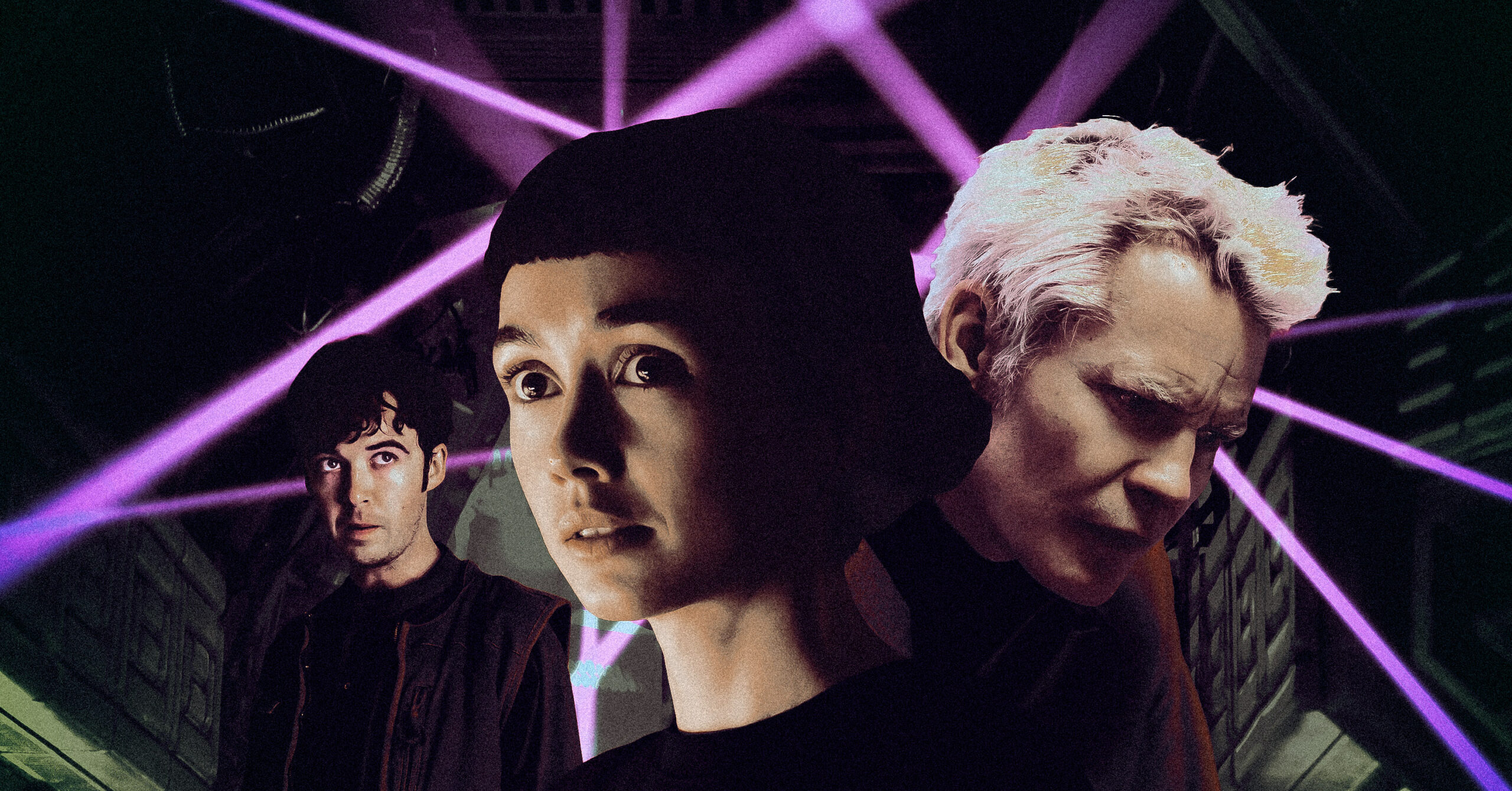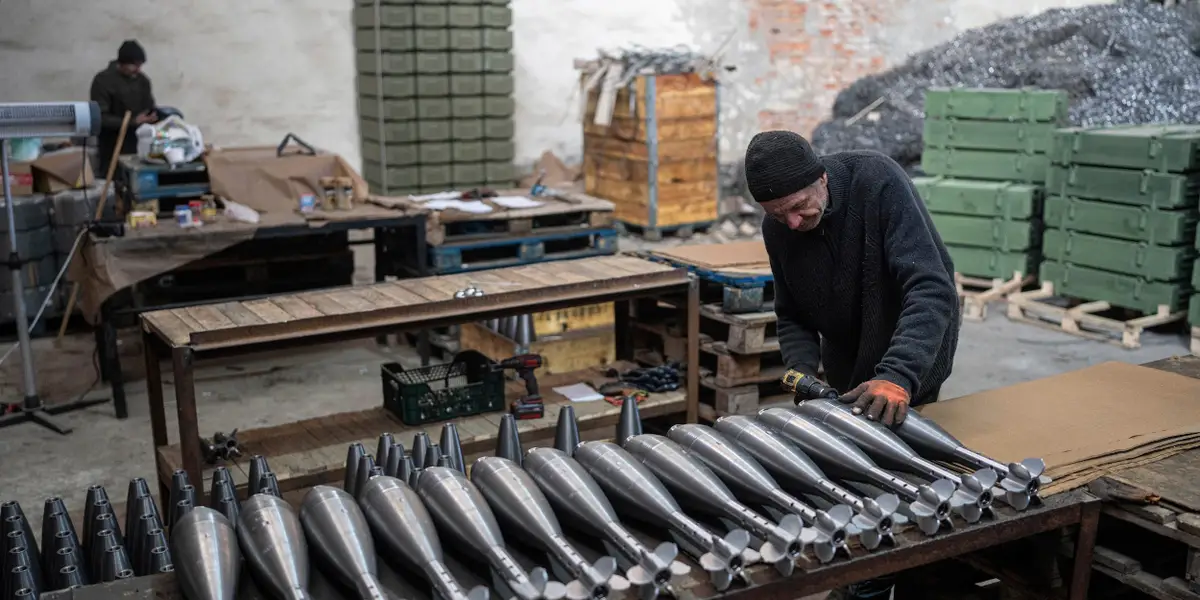
Few franchises in Hollywood have had the staying power of Alien. Since Ridley Scott’s sci-fi blockbuster premiered in 1979, 20th Century Studios has released eight subsequent Alien movies, including sequels, prequels, and crossovers, with at least one film arriving in each decade. Those big-screen installments, combined with an even greater number of novels, video games, and comic books, have made the menacing Xenomorph one of the most iconic—and bankable—movie monsters in the history of cinema. And this year, the franchise produced its first TV series: Alien: Earth.
Created by Noah Hawley, Earth is a refreshing change of pace for the Alien universe—and not just because of the shift in its typical storytelling medium. The series explores the insatiable greed of megacorporations Weyland-Yutani and Prodigy as much as it focuses (as the franchise always has) on deadly extraterrestrials who prey on their human captors. But it also delves into the existential question of what it means to be human, by centering on a group of hybrids—synthetic beings with human consciousness—as they transition from their young human lives (and bodies) into something unprecedented. And just as he did with FX’s Fargo, Hawley uses his distinct filmmaking sensibilities to make a familiar concept and IP feel new and unexpected. Who would have guessed that an Alien story would feature so many references to Ice Age: Continental Drift and images like this?
On Tuesday, Earth concluded an uneven first season with an underwhelming finale. But through eight installments, the show’s highs outweigh its lows, and the series has demonstrated more than enough promise to earn additional episodes. Although FX has yet to officially green-light a second season, a renewal seems like a matter of time, considering the size of the series’ audience, the popularity of the IP, and Hawley’s preexisting (and fruitful) relationship with the network after five seasons of Fargo and three seasons of Legion. In an interview with The Evolution of Horror, Hawley teased that he has a “destination” in mind for a potential Season 2. And Tuesday’s finale provides us with plenty of ideas of where Earth could be heading.
With that in mind, let’s break down the season finale, how it sets up Season 2, and the state of the enduring Alien franchise.
Alien: Earth Season 1 Finale
The series premiere of Earth starts with an all-too-familiar setup in the Alien universe: A Weyland-Yutani ship carries dangerous alien cargo, with its human crew members unaware of their imminent, inevitable doom. But the episode quickly subverts expectations by giving us glimpses of the crew’s predestined demise while we’re still learning the names of the characters. Before the premiere is over, the crew of the USCSS Maginot is dead—save for a sole survivor—and Earth reveals its true interests: Prodigy’s quest to achieve human immortality through the creation of hybrids.
Season 1 peaks in its standout fifth episode, “In Space, No One …,” which leaves Wendy (Sydney Chandler) and the inaugural group of hybrids behind to return to the Maginot’s downfall. In Hawley’s remix of that classic Alien setup, the Maginot crew is culled one by one by the Xenomorph and the show’s complement of monstrous new aliens. However, the survivor isn’t a selfless human hero like Ripley (Sigourney Weaver) or Alien: Romulus’s Rain (Cailee Spaeny). Instead, it’s a cyborg named Morrow (Babou Ceesay), who prioritizes Weyland-Yutani’s mission to bring back the alien specimens over the humans’ survival. Even when the series steps into well-trodden territory, Earth’s execution puts a unique spin on Alien tropes.
That’s why the final three episodes of the season, culminating in Tuesday’s finale, are disappointing. As unexpected as Earth was for the majority of its run, the season fails to stick its landing as story lines conveniently wrap up in a predictable fashion, and the show leans into the realm of more traditional creature horror. “The Real Monsters,” directed by Dana Gonzales and written by Hawley and Migizi Pensoneau, begins with the so-called Lost Boys—Prodigy’s group of children who have become ageless synths—locked in a cell in the Neverland complex, and it ends with their human captors imprisoned in their place. Just as the decision to abduct dangerous aliens always backfires for Weyland-Yutani, the decision to transform a bunch of immature kids into near-immortal technological marvels was bound to turn out poorly for their creators. It just never seemed like the role reversal would transpire so easily.
In the finale, Wendy hacks into Neverland to take godlike control over every piece of technology on Prodigy’s network, including Atom (Adrian Edmondson)—a high-ranking assistant to Prodigy CEO Boy Kavalier (Samuel Blenkin)—who’s revealed to be a synth. Although Wendy displayed her technological abilities across the season, she utilizes them in the finale in new, staggering ways that confound all of the Prodigy scientists who designed her. The source of Wendy’s power is never explained, and neither is why only she wields it, as all the other hybrids in her cohort seem incapable of reaching her potential. Between her hacking skills and her relationship to the Xenomorph, Wendy becomes an unstoppable force that her friends need only follow as the Lost Boys claim Neverland for themselves.
The much-mentioned, historic genius of Boy Kavalier, Prodigy’s founder and the world’s youngest trillionaire, never truly manifests on-screen. What we do see, however, is Boy’s hubris—which was well established across the season—leading to his downfall. Despite being smart enough to build a synth at the age of 6, Boy’s only solution in the face of the episode’s dangers is to offer $1 million to the first Prodigy soldier who can help him safely escape. Another of Prodigy’s greatest minds, Dame Sylvia (Essie Davis), who played a pivotal role in creating the hybrids, does even less: She wanders around the island with aliens on the loose without so much as questioning what happened to her missing husband. Even the much-teased confrontation between Morrow and Kirsh (Timothy Olyphant), Prodigy’s synthetic chief scientist, falls a little flat as it ends in an abrupt stalemate, with Kirsh getting the best of Morrow before they’re both taken prisoner by Slightly (Adarsh Gourav) and Smee (Jonathan Ajayi). Factor in the expected incompetence of Prodigy’s soldiers and the lack of any defense systems in one of the most expensive compounds on the planet, and the Lost Boys’ takeover proceeds with little resistance or suspense.
The finale ends with the Lost Boys; Wendy’s brother, Joe (Alex Lawther); and the pair of Xenomorphs watching over Prodigy’s leadership group and Morrow in their shared cell. When Curly (Erana James), who has reclaimed her original, human identity of Jane, turns to their fearless leader to ask what their next move is, Wendy looks at her (seemingly) domesticated Xenomorphs before replying: “Now we rule.”
The Future of Alien: Earth
As uninspiring as the first season’s closing stretch of episodes was, Earth has still laid a solid foundation to build on in future seasons. And although the hybrid uprising is already complete, there are plenty of directions for the series to go in should it get renewed.
First and foremost, Earth has set itself up to explore what Wendy—assuming she’s keeping that name—has in mind with her plans to “rule.” Entering a potential second season, the Lost Boys have taken control of Neverland, and even Prodigy itself. With Wendy’s seemingly limitless powers and the vast resources of one of the planet’s five megacorporations at her disposal, she and her fellow hybrids can do whatever they want.
One of the more interesting developments in Season 1 is Wendy’s progressive loss of humanity as she starts to empathize with the aliens and lose touch with the people she used to call her own. Her last remaining connection to humans is her brother, who betrayed her trust when he attacked Nibs (Lily Newmark) in Episode 7 to stop her from killing any more of his friends. Joe has been grappling with what his sister has become as he clings to his memories of the beloved little girl he knew as Marcy. In the finale, right after Wendy delivers her last line about the Lost Boys’ rule, one of the last shots of the episode focuses on Joe as he lingers in the background, watching Wendy and her friends with concern. He may be accepted into their hybrid crew for now, but he might also play a part in putting a stop to their rise to power.
The other driver of Wendy’s loss of humanity is her alignment with the Xenomorphs, who have also been exploited by Prodigy’s greed. In the finale, the eyeball and plant monsters escape the facility, with the eye finding a new host in the corpse of Arthur (David Rysdahl), the former Prodigy scientist and Dame Sylvia’s missing husband Meanwhile, both of the Xenomorphs—including the baby that burst out of Arthur’s chest—decide to hang around. But the motives of the creatures that the android Ash called the “perfect organism” in the original Alien—out of respect for the Xenomorph’s “structural perfection,” “matched only by its hostility”—remain one of the show’s greatest mysteries.
Earth took plenty of big swings in its first season, and the biggest is the bond that’s formed between Wendy and one of the greatest predators in cinematic history. When The Hollywood Reporter recently spoke to Hawley about the risk his series has taken by seemingly civilizing the Xenomorph, the filmmaker hinted that the relationship might not be so simple.
“One of the big question marks was if fans were going to go with this idea. I don’t want her to have [a xenomorph as a] pet,” Hawley said. “But if it seems like an alliance has been struck, what are the interesting possibilities that we can pull out of that? And because this is a horror story, we have to assume that, ultimately, I wouldn’t bet on this working out.”
When it comes to the series’ remaining humans (other than Joe), Prodigy and Weyland-Yutani have their hands full with the messes they’ve made. Boy Kavalier and Dame Sylvia are still alive, as are Weyland-Yutani cyborg Morrow and Prodigy synths Kirsh and Atom. The finale ends with Yutani (Sandra Yi Sencindiver) herself on her way to Neverland with her armed forces in tow, hell-bent on reclaiming the alien cargo that Prodigy took from the crashed remains of the Maginot. As much as Yutani and Morrow want to destroy Boy and his company, they may now share a common enemy if Wendy decides to take on the rest of humanity.
The opening text of the series explains that “in the future, the race for immortality will come in 3 guises”: cyborgs, synths, and hybrids. And “which technology prevails will determine what corporation rules the universe.” So far, Earth has focused on only two of the world’s five megacorporations. A third megacorporation called Dynamic, which apparently controls the Earth’s moon, was mentioned in passing in the first episode, while the remaining two companies—Lynch and Threshold—haven’t even been referenced by name on the show
If one of Earth’s primary concerns is this “race for immortality,” Season 2 could focus on any of these lesser megacorporations, as Prodigy cedes its power to its own creations. It could also center more on Yutani and Morrow, with Yutani in position to take advantage of Boy’s missteps. And if anyone could use more time in the spotlight, it’s Morrow, the show’s most compelling character by far. Morrow was largely sidelined in the last three episodes of the season after starring in Episode 5, and the series was worse off because of it. With Morrow and Kirsh locked up by the Lost Boys, the cyborg and the synth represent now-outmoded technologies in the three-headed race for immortality, but they could still play a role in preventing Prodigy’s rogue hybrids from ruling the universe
Hawley and Co. may have overstuffed and rushed to conclude the first season, leaving plenty of unexplained plot points. But that just means more territory for a second season to explore. What’s more, the series looks fantastic, with its stunning retro-futuristic production designs and striking cinematography, and it features strong performances from a talented cast. Wherever Earth goes from here, the series will be better off with more of Ceesay’s Morrow.
The Alien Universe
Between Earth and Romulus, the Alien franchise is alive and well after lying dormant since the release of Alien: Covenant in 2017. Fede Álvarez’s 2024 blockbuster might not have been as distinct as Earth, but it was a crowd-pleasing throwback to the original Alien that (like the video game Alien: Rogue Incursion) hearkens back to the franchise’s horror roots. Both Romulus and Earth borrow the iconic ’70s aesthetics of Alien and feature incredible practical effects that imbue their visuals with a classic feel, while also injecting a modern flair to reinvigorate the franchise.
In addition to Earth’s potential second season, a Romulus sequel is in development, as the journey of Rain and Andy (David Jonsson) is set to continue. Álvarez recently told TooFab that he and cowriter Rodo Sayagues had finished writing the film’s script and that he would be staying on as a producer with Ridley Scott—but he won’t be returning as the director.
“That’s usually what has happened, except for Ridley, filmmakers come, you make one and you pass the baton to the next one,” Álvarez said. “But we wrote the story because we really love what we started with Romulus and we want to continue the story. We love the story and now we just want to find a director that really wants to go for the jugular.”
Romulus helped propel the Alien film franchise forward, just as Earth is doing on the small screen. We may be living in an IP-driven media age where original stories are increasingly rare, but Alien has provided a template for how to mine intrigue from the familiar.



